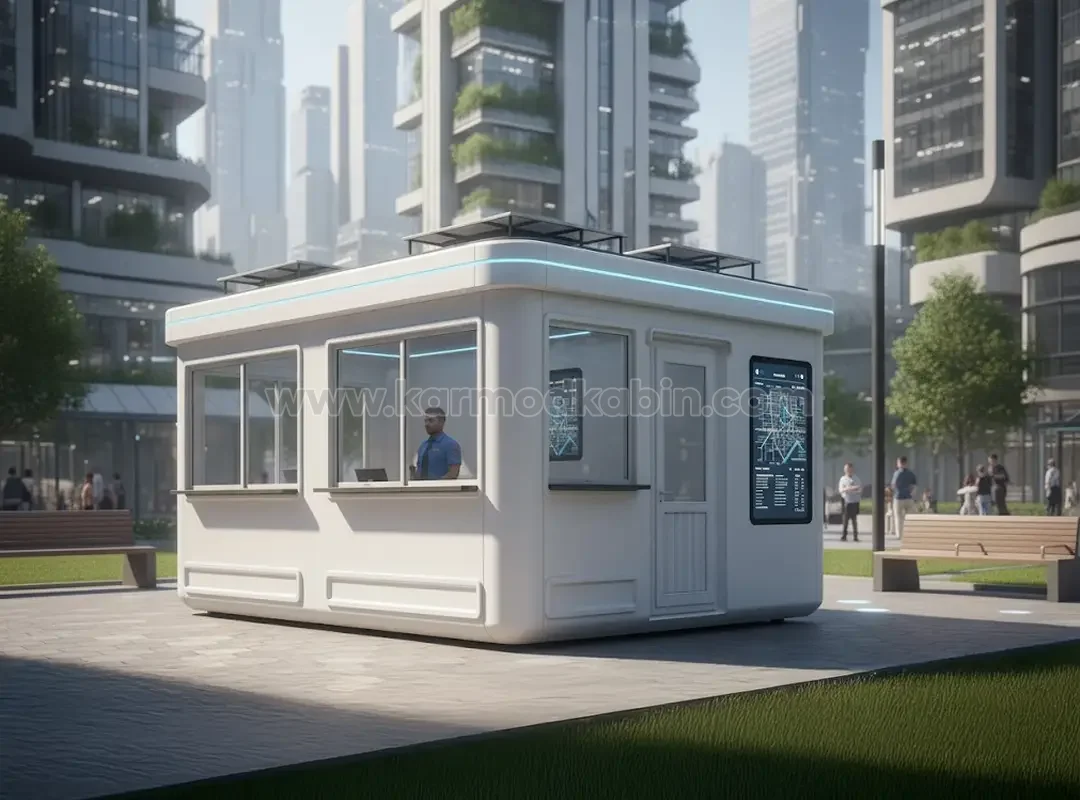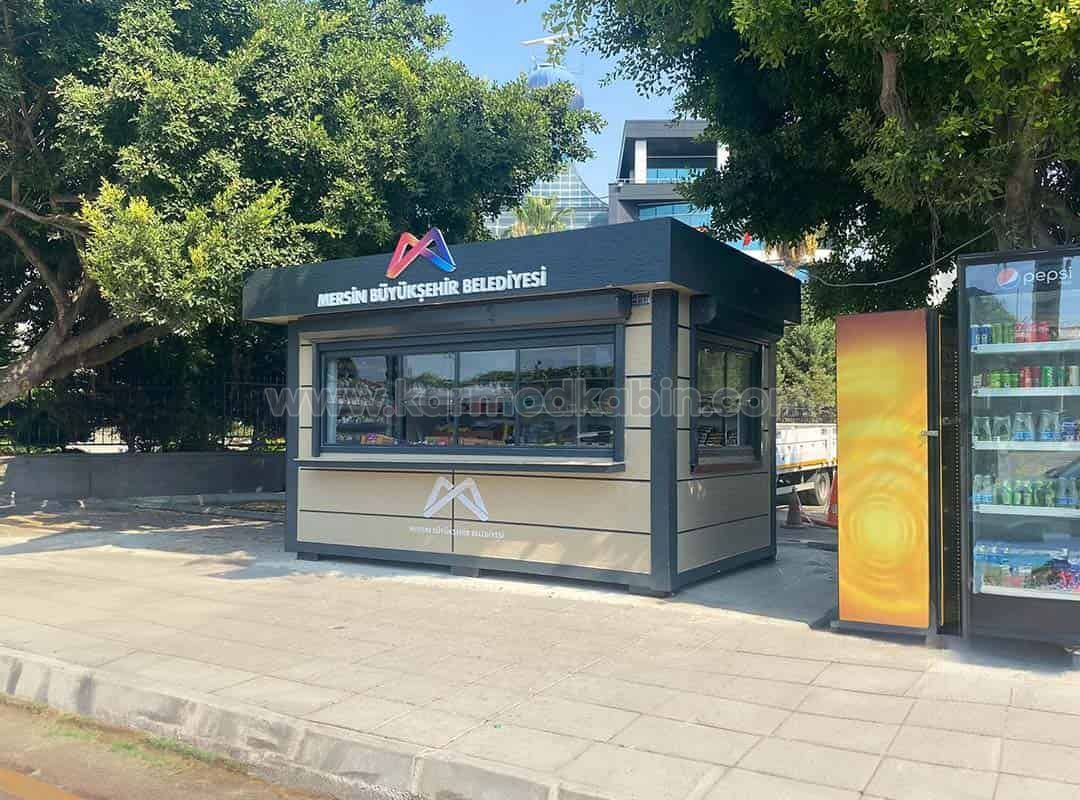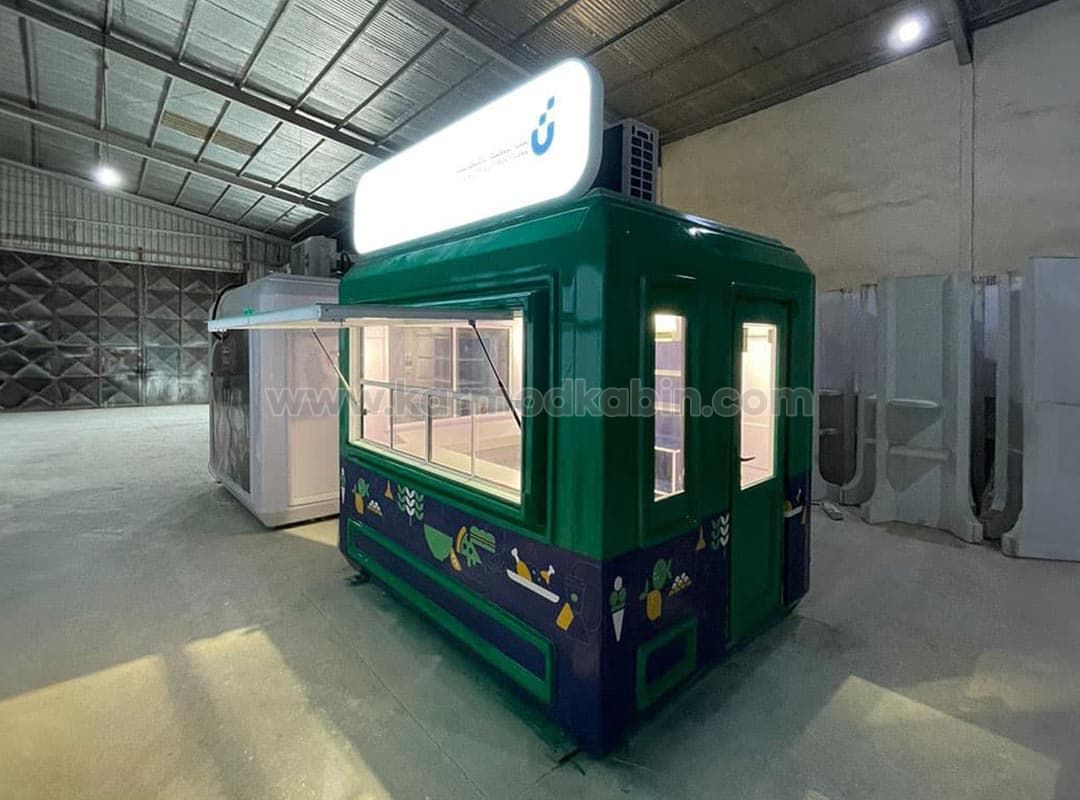
In today’s competitive business landscape, flexibility, accessibility, and customer experience are more valuable than ever - and this is exactly where the modern kiosk comes in. A kiosk is a compact, self-contained structure designed to provide sales, service, or information to customers without the need for a traditional store. These modular units can operate independently in shopping malls, airports, streets, campuses, or events, offering an efficient way for businesses to reach their audiences directly. Whether used for ticket sales, food service, information, or retail, kiosks are transforming how companies interact with customers, redefining convenience and speed in every sector.
Unlike permanent stores that require large investments and long construction periods, kiosks are pre-fabricated, portable, and easily installed - often ready to operate within hours. They allow businesses to expand their presence quickly, test new markets, or operate seasonally without high overhead costs. A well-designed kiosk doesn’t just sell products; it becomes an extension of the brand, representing quality, innovation, and modern customer care. In a world where instant service is expected, kiosks provide a perfect balance between efficiency and personal interaction.
Originally, kiosks were simple stands or booths designed for basic transactions. However, technological advancements and evolving consumer habits have completely transformed them. Today’s kiosks are intelligent, modular, and fully customizable units that blend design, technology, and functionality. Businesses now use self-service kiosks to handle ticketing, payment, registration, or order processing without the need for full-time staff. These digital kiosks are equipped with touchscreens, QR scanners, and contactless payment systems - all aimed at delivering faster and more convenient service.
But beyond automation, the evolution of kiosks represents a cultural shift toward accessibility and customer empowerment. People now expect services to be available anytime, anywhere, and kiosks make that possible. For example, a retail kiosk can sell products 24/7, while an information kiosk provides directions or updates in real time. Modular kiosk systems can be relocated, resized, or upgraded, adapting seamlessly to business growth. This flexibility is what makes kiosks one of the most powerful tools in modern retail and public service.
The modern kiosk market has evolved into an incredibly diverse field, offering solutions for almost every business sector imaginable. From retail to food service, from tourism to government institutions, each kiosk type serves a distinct purpose while sharing one common goal - improving efficiency and customer interaction. Understanding these types will help business owners determine which kind of kiosk best fits their needs, budget, and target audience. Every model can be customized to reflect the character of a brand while delivering outstanding performance in daily operations.
Here are the main types of kiosks and how they are used in today’s fast-paced world:
Each of these kiosk types offers unique advantages that contribute to smoother operations and a better customer experience. By choosing the right configuration, materials, and technology, a business can easily adapt a kiosk to its operational goals while presenting a modern, professional image.
Investing in a kiosk is no longer just an option for innovative companies - it has become a necessity for any business that values agility, visibility, and customer satisfaction. Kiosks allow entrepreneurs and established brands alike to reach their audiences faster, expand their presence in multiple locations, and provide high-quality service with minimal overhead. For startups, they are an affordable entry point into physical retail; for large corporations, they are powerful extensions of an existing network that help maintain presence in busy or temporary environments.
The main benefits of integrating kiosks into your business operations include:
A successful kiosk is not just about what it sells - it’s about how it looks and how it works. Modern kiosk design combines aesthetics with functionality to attract customers and build trust. Clean lines, bright displays, and branded colors make your kiosk stand out in any setting. Internally, advanced wiring systems, lighting, and ventilation ensure comfort for staff or users, while external materials are chosen for durability and easy maintenance. Whether you’re selling tickets, serving coffee, or promoting products, design consistency enhances both brand identity and user experience.
Technology integration takes the modern kiosk to the next level. Touchscreen interfaces, secure payment gateways, and smart analytics tools help businesses gather insights and adapt in real time. Wi-Fi connectivity allows for cloud-based monitoring, remote software updates, and customer feedback collection. Some kiosks even feature solar panels or energy-efficient lighting, reducing their environmental footprint. The combination of innovative design and smart technology makes kiosks powerful, self-sustaining business units capable of operating independently in nearly any environment.

Customization is what transforms a standard kiosk into a reflection of a brand’s essence and purpose. Every business has a unique story, and the design of a kiosk can visually communicate that identity. A retail brand may want sleek lines and elegant finishes, while a coffee kiosk might require open counters and warm tones that invite customers to interact. Through customization, the size, materials, colors, and configuration of a kiosk can be adjusted to create harmony between function and aesthetics.
When developing a customized kiosk, both visual and functional aspects are equally important:
A well-customized kiosk not only increases brand visibility but also enhances efficiency and customer experience. It becomes an immersive space that tells the story of your brand while fulfilling the exact needs of your business operations.
As global business practices shift toward environmental awareness, modern modular kiosks are setting new standards in sustainability. Companies now recognize that reducing energy consumption and minimizing waste are not only ethical goals but also smart financial strategies. Kiosks designed with energy-efficient systems and recyclable materials support this mission perfectly. They deliver the same level of performance as conventional structures while leaving a much smaller ecological footprint.
The key sustainable and energy-efficient elements that define modern kiosks include:
These sustainable design choices demonstrate that business growth and environmental responsibility can coexist. By choosing an energy-efficient kiosk, a company signals to its customers and partners that it values innovation, efficiency, and long-term stewardship of resources. Sustainability is no longer a trend - it is a defining factor of modern professionalism and future-ready business design.

The rise of kiosks marks a fundamental shift in how businesses operate and engage with customers. They combine the accessibility of online shopping with the tangibility of in-person interaction, creating a hybrid experience that’s both personal and efficient. For many brands, kiosks serve as the first step toward physical expansion - a low-risk, high-visibility solution to test new products or markets. Their mobility also allows companies to reach audiences that traditional stores can’t, from pop-up events to transportation hubs.
Furthermore, kiosks align perfectly with consumer behavior in the digital age. Customers today prefer speed, independence, and convenience - and kiosks deliver exactly that. By providing 24/7 access to products and services, they meet modern expectations while keeping operational costs low. Whether it’s a retail chain expanding its reach, a municipality offering public information, or an entrepreneur launching a new idea, kiosks represent the perfect blend of innovation, efficiency, and modern business design.
Your kiosk is more than a sales point — it’s the face of your brand. We specialize in creating custom kiosks that combine style, durability, and technology to help your business thrive anywhere. Whether you need a compact retail kiosk, a digital information booth, or a modular food stand, our team will design and manufacture a solution tailored to your needs. Every structure we produce is engineered for performance, with weatherproof materials, integrated power systems, and fully branded exteriors that attract attention and inspire confidence.
Partner with professionals who understand how to turn design and function into real business value. Contact us today to discuss your custom kiosk project, and discover how a modular, portable, and beautifully designed kiosk can elevate your brand, increase visibility, and redefine the way you connect with your customers.